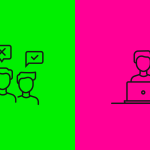Should you make the switch to Drupal 9?

With the expected release of Drupal 9 arriving mid-2020, your friendly tech nerds at WeAreBrain take a look at the updates it promises and how it compares to its predecessor.
Drupal 9 release
Drupal is a very popular open-source CMS and chief competitor to WordPress. It’s highly likely that the website or mobile application you are reading this article from is powered by Drupal technology. What makes it such a widely used system is its freedom of flexibility and high-end security capabilities. Our Brainiac developers choose Drupal over WordPress for many of our projects, so when we heard that Drupal 9 is about to be released we just had to find out what all the fuss is about.
After some eager research, we found that the main takeaway is that Drupal 9 will be the company’s first major release with built-in backward compatibility, meaning upgrades from the previous version will be smooth as Bieber’s chin. Of course, more up-to-date underlying libraries will be added, too.
According to the company, the majority of Drupal 9 has been built in Drupal 8 using deprecations and updated dependency support. Unlike previous versions, Drupal 9 isn’t a complete reimagining of Drupal, but rather an enhancement. There are 2 key differences from its predecessors: updates of dependencies to versions which stay supported, and, removal of Drupal’s own code that they deprecated with the change before Drupal 9’s release. What this basically means is that other than these 2 updates, Drupal 9 will function exactly the same as Drupal 8.
Drupal explains it like this: “Imagine your website is a train. Previously, moving major versions meant moving the train to a different track entirely. Beginning with Drupal 9, new major versions will just be stations on the same track.”
Key differences between Drupal 8 and Drupal 9
Before, whenever the latest version of Drupal was released it would often send pulses of minor hysteria through the tech community because they didn’t guarantee backward compatibility with previous versions. This meant a lot of re-inventing the wheel came into play and even more hair-pulling from incredulous developers.
Developers would previously have to use migration modules to transfer data and content from previous core versions to the latest one. Over-and-above having to ensure that your modules were, in fact, supported by Drupal 8, developers still had to painstakingly search through their source files to find deprecated code needing to be updated. It is a lengthy and frustrating process, especially because many modules would become outdated with every release, or lag behind for long periods of time.
Drupal 9 promises backward compatibility, meaning all existing Drupal 8 components will still work with the latest version, for example, if any of your site’s key features depend on modules, you can rest assured that when you update to Drupal 9 all your hard work will still be there, functioning like before.
But wait, there’s more! Drupal 9 will be released with support for newer PHP libraries, including the latest versions of Symfony and Twig. Something to keep in mind is that by November 2021 Symfony 3 (the flesh and bones of Drupal 8) will no longer receive security patches.
The first iteration of Drupal 9 will likely feel very similar to Drupal 8, so don’t expect huge changes in functionality from the start. If you want more changes then you will have to wait for Drupal 9.1, the company has said. If you’re already using Drupal 8, the upgrade should go seamlessly, provided your modules are up-to-date and you’re not using deprecated code.
Sergey Linkin
Working Machines
An executive’s guide to AI and Intelligent Automation. Working Machines takes a look at how the renewed vigour for the development of Artificial Intelligence and Intelligent Automation technology has begun to change how businesses operate.







